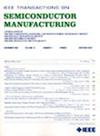利用专业化的力量减少数据中心计算的碳足迹:原则、指标、挑战和机遇
IF 2.3
3区 工程技术
Q2 ENGINEERING, ELECTRICAL & ELECTRONIC
引用次数: 0
摘要
计算是应对气候变化不可或缺的工具,但它也造成了显著且稳步增长的碳足迹,部分原因是人工智能(AI)等高能耗工作负载的指数级增长。虽然硬件专业化已成为提高运营能效的主要驱动力,但它也带来了新的挑战,包括增加体现排放以及异构和动态数据中心运营复杂性的上升。我们认为,虽然专业化是可持续计算的必要条件,但要充分利用专业化的力量,学术界和技术界必须应对专业化带来的具体挑战。我们列举并分析了专业化在软件、系统设计和运营方面带来的关键挑战,以及它们对碳成本的潜在影响,并为每个确定的领域提出了前进方向。此外,我们还认为,计算系统的整个生命周期中存在着错综复杂的关系,必须对其进行理解、建模和分析,以确定碳生命周期效率最有利的帕累托前沿。我们对这些权衡进行了分析,并提供了一种使用统一指标和框架来解决这些问题的方法。本文章由计算机程序翻译,如有差异,请以英文原文为准。
Reducing Datacenter Compute Carbon Footprint by Harnessing the Power of Specialization: Principles, Metrics, Challenges and Opportunities
Computing is an indispensable tool in addressing climate change, but it also contributes to a significant and steadily increasing carbon footprint, partly due to the exponential growth in energy-demanding workloads, such as artificial intelligence (AI). While hardware specialization has become the primary driver of operational energy efficiency improvements, it introduces new challenges including increased embodied emission, and a rise in complexity of operations of heterogeneous and dynamic datacenters. We posit that while specialization is necessary for sustainable computing, to fully harness its power, the academic and technical community must address the specific challenges arising from embracing it. We enumerate and analyze key challenges that specialization introduces across software, system design, and operations, and their potential impact on carbon cost, and propose a way forward for each identified area. Furthermore, we argue that intricate relationships exist across the life-cycle of compute systems, which must be understood, modeled, and analyzed to identify the most beneficial Pareto frontiers for carbon life-cycle efficiency. We analyze these trade-offs and offer an approach to address them using a unified metric and framework.
求助全文
通过发布文献求助,成功后即可免费获取论文全文。
去求助
来源期刊

IEEE Transactions on Semiconductor Manufacturing
工程技术-工程:电子与电气
CiteScore
5.20
自引率
11.10%
发文量
101
审稿时长
3.3 months
期刊介绍:
The IEEE Transactions on Semiconductor Manufacturing addresses the challenging problems of manufacturing complex microelectronic components, especially very large scale integrated circuits (VLSI). Manufacturing these products requires precision micropatterning, precise control of materials properties, ultraclean work environments, and complex interactions of chemical, physical, electrical and mechanical processes.
 求助内容:
求助内容: 应助结果提醒方式:
应助结果提醒方式:


